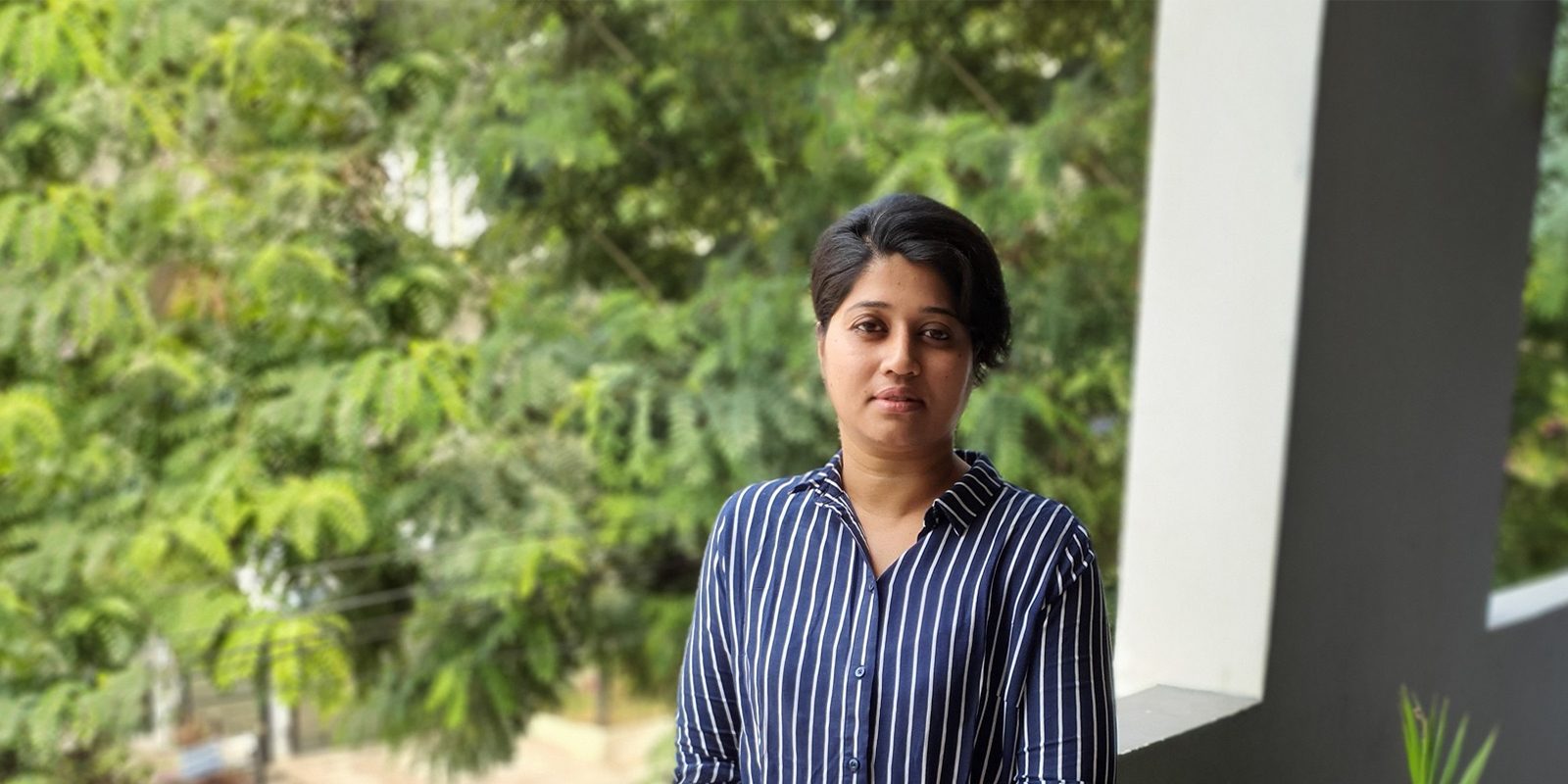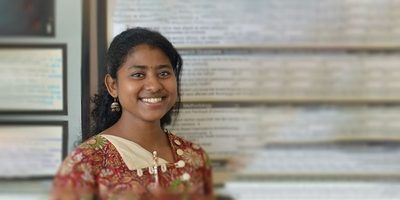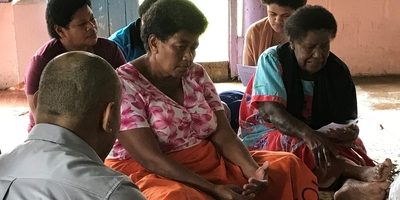
Meet Renu John, Research Assistant working on Women’s Health research
Research Assistant at The George Institute India Renu John shares her profile story, her work with the Institute and how the she is grappling with COVID-19 lockdown.
Q. Tell us a bit about your professional background?
I have a Bachelor’s degree in Dental Surgery (BDS) with a Master’s in Public Health (MPH). After a brief period of clinical dental practice, I ventured into public health because of the urge to expand my horizon and was unaware of the impact this field can make. However, my first assignment to record the maternal deaths and conduct their verbal autopsy in the far-flung villages of Sri Ganganagar district of Rajasthan turned out to be an eye-opener on the importance of public health and from then there was no turning back.
Having spent 7 years in this field, I have consistently multitasked various roles and have had cross-functional experience in monitoring and evaluation of Maternal & Child Health (MCH) programmes, occupational health risk assessment, promotion of work place health & safety, trainings & capacity building and project management.
Q. What does a normal day at work look like for you?
I joined the George Institute for Global Health in May 2018. Ever since, I have been working on the Lifestyle Intervention in Gestational Diabetes (LIVING) study which is a multi-country, multi-site, individual Randomised Control Trial (RCT) that aims to determine whether a lifestyle intervention program provided after childbirth, to women with prior gestational diabetes, will reduce the incidence of worsening of glycaemic status. Further on, I am also involved in two seed grant projects – Environmental Support for Walking in India (EnSWIn) that aims to assess the environmental support for walking in the cities of Hyderabad & Vijayawada and Healthy Ageing Fiji which assesses the health system preparedness for population ageing in the most rapidly ageing Pacific island country.
My work is a combination of desk job and field activities, which require me to monitor site performance, oversee the delivery of the various components of the intervention program, conduct trainings, make monitoring visits, host meetings and disseminate information. However, my work does not limit me to the activities alone. It introduces me to various communities across various states, their perception on health, their health seeking behaviour and problems unique to their region or culture.
All these exciting and challenging projects that I work on, carry far reaching impact on community health, health policy, health system and the society at large. My work carries the ability to make a difference in people’s lives and this is what inspires me to think farther, do better and play my part to provide better care and build healthier societies.
Q. Has your work life changed at all due to COVID-19 and the nationwide lockdown?
My normal day is never the same every day. It’s been 21 days since the lockdown, and I must say I am yet to get the hang of ‘work from home’ and ‘work for home’ under these unprecedented conditions. Times like these calls for a new set of responses and hence ‘multitasking’ is the new reality.
Office work, child-care, home-schooling and house chores does bring domestic life and work life into a head-on collision and striking a balance between the two is a challenge. Moreover, with the day-to-day life at a standstill and anxieties about the disease, corona virus has changed the way we work, communicate and cope.
Q. Has the COVID-19 crisis affected any of your projects / programs? If so, how have you adapted to the situation?
Yes, this crisis has affected a few components of the LIVING study especially the intervention delivery and the follow-ups. However, we have placed the health and safety of our study staff and the communities that they work with, as our first order of priority and suspended all hospital/ home visits and in-person data collection. The LIVING team has put in place several solutions to help mitigate the impact of COVID-19 on the study operations with one of the core strategies being the transition to remote / mobile phone-based data collection.
Q. Do you have any other professional interests apart from your work with the LIVING & EnSWIn team?
I was always drawn towards the infinite possibilities of the use of Geographical Information System (GIS) in the field of public health. I first realised its untapped potential when I had to manually map all the sand stone mines at Jodhpur, as part of my thesis fulfilment in MPH course. I pursued my interest by attending workshops and online courses but never got the opportunity to use it in a real time project.
EnSWIn which utilises GIS for collection of secondary data gave me the chance to use my knowledge in GIS and build upon my skill. I intend to pursue this interest further and make it one of my key strengths.
Q. What is a recent highlight?
My trip to the South Pacific island – Fiji as part of the qualitative training and in-country qualitative data collection component of the Healthy Ageing Fiji project. This trip was my very first experience overseas and one of the biggest highlights in my career so far.
I took part in the training session at the Fiji National University along with other colleagues from Fiji, coordinated the focus group discussions and the in-depth interviews with the locals, health care and community health workers which was conducted at the villages and old age homes.
Apart from the professional enrichment and the confidence boost this trip gave me, it also did give me the rare opportunity to watch the sun set into the Pacific Ocean while I sipped coffee by the window of my room.
I am fortunate for being supported by TGI in pursuing the 1-year certificate ‘Leadership in Public Health’ course offered by Manipal Academy of Higher Education & George Institute for Global health, the first of its kind curriculum put together by internationally recognised public health leaders.
Q. What do you like most about working at The George Institute?
There is no dearth for motivation at TGI. We have brilliant minds at work chasing the same dream which is improve health of millions of people worldwide. The George Institute for Global Health is an employee driven organization. TGI is very supportive towards the personal learning and development of its employees. We are always encouraged to update our knowledge, build a new skill or pursue a passion. Last but not the least, TGI allows working mothers like me strike the right work-life balance.
Q. What support do you need from TGI during this period?
TGI has been in the forefront to support its employee during these stressful times. Meditation sessions to ensure our mental well-being, regular catch up meeting to discuss work, dissemination of authentic information on COVID-19 through the Gwiz website, support from HR and finance team on insurance support and bill claim management are some of the many activities of TGI to support its staff.
Q. Any advice for your colleagues during these challenging times?
Relax. It is frustrating when work is on your mind, but home is a battlefield with cook-clean-repeat even with your partner helping you out. Get enough sleep, cut yourself some slack, hold your little one close and be grateful for today. This too shall pass and there shall be light at the end of the tunnel.



